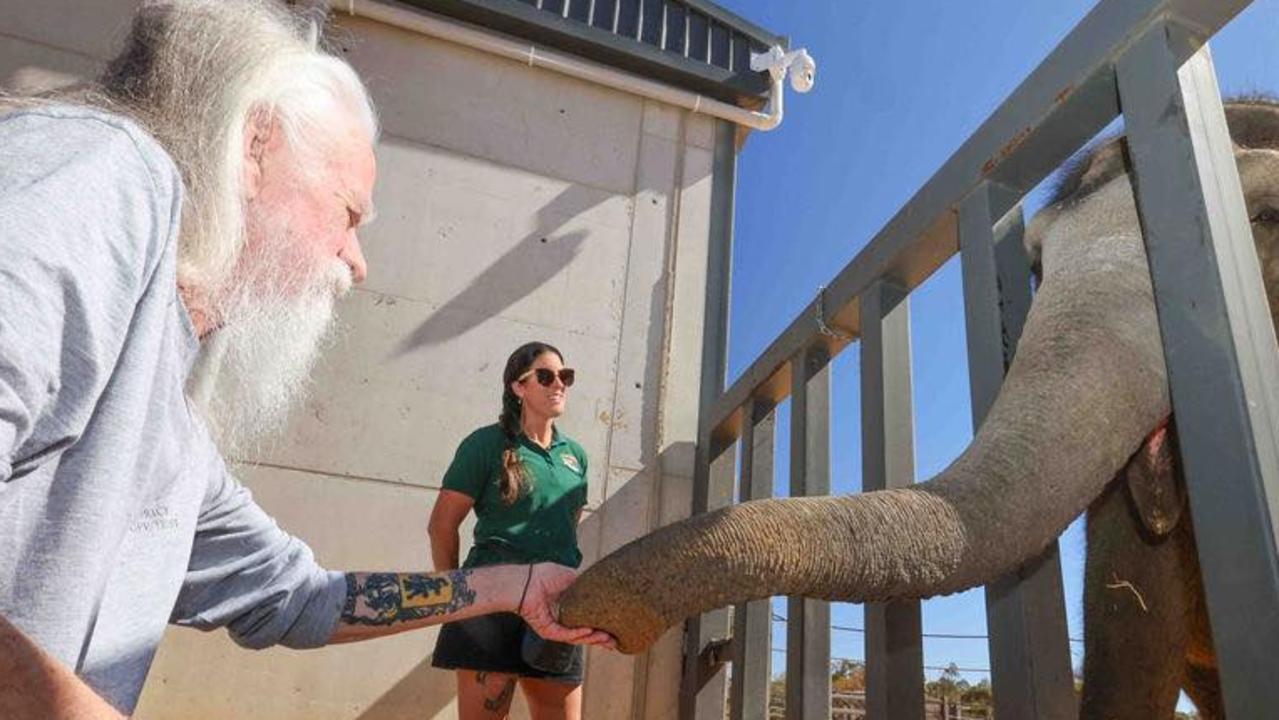Evangeline Polymeneas: What is gaslighting and is it happening to me? | Life // Love // Sex
“Whenever my partner and I disagree, they make me feel like I’m being unreasonable.” If that sounds like you, you’re not going mad, writes Evangeline Polymeneas.

Lifestyle
Don't miss out on the headlines from Lifestyle. Followed categories will be added to My News.
Whenever my partner and I have a disagreement, they always make me feel like I’m being unreasonable.
We had a fight the other day about the washing. I told my partner to hang up the towels once the washing machine had finished its cycle and when I came home, they weren’t hung up.
I lost it. They told me that I hadn’t told them to hang up the washing but I definitely did.
They said I couldn’t be angry at them for not doing something they didn’t know they had to do.
I just felt helpless.
———————————————————————————————————————
It sounds like you’re being gaslit.
If you’ve been watching Married At First Sight, you might be aware of what gaslighting is. Despite gaining notoriety during the 2016 American presidential election, the term gaslighting has been thrown around in pop culture to refer to situations when someone challenges your perception of reality in an attempt to discredit you.
While it has gained popularity in recent years, the term has been used in academia for decades.
The phrase ‘gaslight’ originated from a 1938 thriller written by playwright Patrick Hamilton called Gas Light. It follows a man who manipulates his wife into believing that she has gone mad and can no longer trust her own perceptions of reality.
In one scene, the man causes the gas lights in their house to flicker. Yet when his wife asks about it, he insists that it’s not really happening and that it’s all in her head.
It’s emergence into popular discourse has brought with it a number of ‘uh huh’ moments from people who could never put a finger on why they’ve felt unhinged in certain relationships.
I spoke to professor in psychology at Flinders University, Damien Riggs to find out more.
“There’s conscious and unconscious gaslighting,” Prof Riggs said.
He said that unconscious gaslighting is quite a gendered issue as it is often directed by men towards women.
“We see women doubted all the time, women’s truths being questioned all the time,” he said.
Prof Riggs referred to #MeToo, a movement that saw women standing up against sexual violence, saying that it was women's response to being gaslit.
“In many ways it (the movement) was saying no, this is actually what’s going on, don’t try and tell us that it is not going on.”
Prof Riggs said that gaslighting is a common framework for women’s voices to be discounted and that men sometimes take this framework into their relationships unconsciously.
“That discredit can be really unconscious but it’s still unhealthy,” he said.
On the flip side, conscious forms of gaslighting when people intentionally try to exert power over someone else leading them to feel insignificant, worthless or as though there is something fundamentally wrong with their memory or their mental health.
recurring, conscious forms of gaslighting is a form of abuse.
Gaslighting can be so subtle that some feel comfortable gaslighting others on national television.
Fans were quick to label Andrew from MAFS behaviour towards partner, Holly as gaslighting.
This is classic gaslighting behaviour. How 👠can 👠people 👠not 👠see 👠this! Holly is acting ‘crazy’ because that is legit what gaslighting people make you feel. CRAZY. #MAFSAU#mafs#MarriedAtFirstSight
— akinat (@Elle94004403) February 16, 2022
Australia watching the entire group side with Andrew tonight #MAFSAUpic.twitter.com/xOkh7VQj7S
— Jimmy & Nath (@jimmyandnath) February 16, 2022
In case it builds awareness: Andrew blaming Holly of narcissism is a classic example of narcissistic projection - accusing someone of doing what they in fact are doing. The narc passes their shame to avoid dealing with it. Holly needs to leave. The manipulation is abusive #MAFSAU
— Sahar Adatia (@sahar_adatia) February 15, 2022
Andrew spent time telling the other contestants that Holly was ‘crazy’ in an attempt to discredit her. Then told producers that he felt that the other contestants “really wanted to go after Holly”, saying “that’s a reflection of Holly, not me”, justifying his behaviour.
It’s fair to wonder why anyone would try and intentionally gaslight someone but Prof Riggs said that it’s like any form of abuse — it’s about power and control.
“Gaslighting, because it can be very subtle, is a way to control someone else.
“It’s like a frog in boiling water,” Prof Riggs said, “someone starts off very slowly, the relationship has been going for a few months and they might start saying, oh that’s not what happened, you forgot, silly you, you’ve got a bad memory.”
Unfortunately the nature of gaslighting creates a paradox that causes the gaslighter to accuse the gaslit of gaslighting them (are you still with me?).
So how can you confront your gaslighter without them telling you that you’re the pot calling the kettle black?
Prof Riggs suggested getting up and walking away for a moment. Talk to other people and try to unpack the patterns and behaviours that you’re being subjected to.
“Keep the receipts,” Prof Riggs said, “particularly if these things are occurring over emails or texts. Keep copies of that to say, actually no, this is what I’ve said and this is how you’ve now misconstrued that.”
For the person being gaslit, keeping copies of ‘reality’ ensures that they can assure themselves that they are in fact sane, despite what the gaslighter is saying.

Prof Riggs said that if your partner makes you feel as though you are forgetting what you’ve said, you should communicate to them that their behaviour makes you feel as though they are undermining you and that you wonder or worry why they might be doing that.
By calling it out, you could be showing someone, who otherwise was unintentionally hurting you, that what they were doing is unhelpful and come actually become quite harmful.
“When we start in a relationship, we should all be really mindful of our own behaviours and speaking about them as early as possible, so, if that happens you know really early on.”

It can be hard to recognise that you’re a victim of gaslighting.
“People might struggle to leave the relationship because they think other people are going to think that (gaslighting) isn’t abusive,” Prof Riggs said.
“The recovery can be harder because they stay in the relationship longer and their sense of self is undermined even more.
“That journey to recovery really is about how you reorient your perception of what the person was doing — it was a reflection of them and their desire for power and control, not a reflection of you.”
Your partner could have conveniently forgot that you asked them to hang up the washing, but if they continue to ‘conveniently’ forget, you might want to sit them down and explain what they are doing and how it’s affecting you.
No one deserves to be made to feel crazy.





